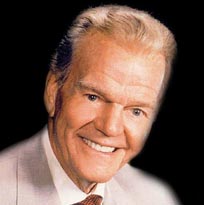After my discovery of delectable Shrimp and Grits at Marlow's in Alpharetta, you may recall reading that Connie set out to re-create it here on the high desert. Alas, she wasn't satisfied with her first effort and forbade my putting the recipe in front of you. (Yes, she is a perfectionist.)
But this week, she tried again. The picture above is just before we tied into this melt-you'-mouth creation that made me sorry all over again for all of the mean and nasty things I said about grits in the past. This time the recipe passed Connie's muster, so we call it "Shrimp and Grits Connie's Style." She has given her permission for me to pass it on to you. Here it is:
Cheddar Grit CakesIf you're so inclined, try this recipe and let us know what you thought about it, or how you improved it.
1 cup 1% milk (I used skim milk)
1(14 ounce) can fat free less sodium chicken broth
¾ cup uncooked quick-cooking grits
2 tsp minced fresh jalapeno pepper (optional)
½ cup (2 ounces) shredded extra sharp cheddar cheese (don’t compromise on this unless you go extra extra sharp)
1. Bring milk and broth to a boil in a medium saucepan. Stir in grits and jalapenos. Reduce heat and simmer until thick almost dry. Stir in the cheese; stir until cheese is melted. Spread grits into a 9 inch square baking pan (glass works best) that has been greased with butter or coated with cooking spray; cover and refrigerate for 8 hours or until set.
2. Invert grits onto a cutting board. Cut grits into 4 (4-1/2 inch) squares. Cut each square diagonally into 2 triangles. Heat a large nonstick skillet thinly coated with cooking oil or cooking spray over a medium high heat. Add triangles; cook 4 minutes on each side or until lightly browned. Serve with shrimp and sauce over the grit cakes.
Shrimp and Sauce
1. Sauté 1/2 cup chopped green onion, ¾ of a red sweet pepper coarsely chopped and 6 medium mushrooms sliced in1/3 c butter. Season to taste with a mixed dry seasoning. I use Kroger’s Original Zesty Seasoning Blend. Sauté the vegetables al dente.
2. Add 40 frozen uncooked shelled and deveined shrimp or fresh shrimp. Add 2/3 cup clam nectar, scallop nectar, shrimp nectar (you may buy fresh shrimp to shell and devein. Shell them the day before and boil the shells – not the shrimp - in a generous cup of water for 15 minutes – let the nectar stand overnight to get the best flavor) (I used the juice from poached scallops that I cooked a few weeks before and froze). Cook until the shrimp are pink.
3. Remove shrimp and veggies from the pan. Make a light roux of a generous tablespoon of cornstarch and water. Add the roux to the liquid in the pan enough roux to thicken a little more than the finished sauce. Add the shrimp and veggies. The juice from the shrimp and veggies should thin the sauce to just right. Continue to cook just until everything is heated through. Don’t overcook.
Serve over Cheddar Grit Cakes.
Note: We don’t cook with salt and find this dish well-seasoned but salt lovers may want to add to taste.
- Milo
















